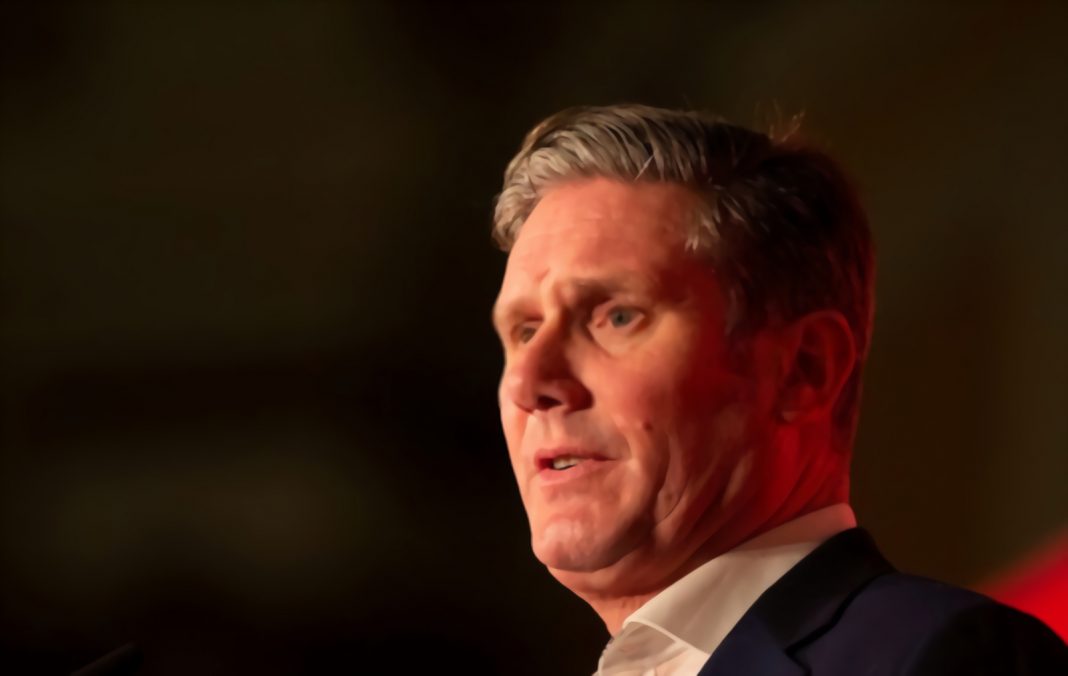Keir Starmer outvoted Rebecca Long Bailey and Lisa Nandy by 56.2% at the polls to take the helm of the Labour Party. In his first speech as leader, Starmer said: “He will try to lead the party to a new era full of trust and hope.”
Economy and Foreign Policy Reforms
According to Sky, at the party’s annual conference, Sir Keir Starmer, Labour leader and Jeremy Corbyn’s successor, moved on from an internal party row to focus on the economy and foreign policy after a bruising battle over his shake-up of the rules for party leadership contests.
Following the British parliamentary elections in 2019 and the heavy defeat of the Labour Party, speculations and analyses about the continuous drop in the party’s votes at the ballot box have grown stronger among the various sections of British society.
In the recent local council elections, Labour lost some of its seats in the West and North. These failures prompted Keir Starmer to reconsider the party’s current agenda, a programme based more on individual rights and freedoms and the demands of the educated and urban middle class, in which the role of the traditional British working class has diminished. Starmer has sought to erase the effects of Corbyn’s extreme leftism from the party and move Labour towards slightly more open and liberal policies.
As stated in the New York Times, speaking at the party’s annual conference, Mr Starmer promised a “serious programme for government” with more investment in healthcare, mental health, education and the environment, while stressing his patriotism and toughness on crime.
Winning the Next General Election
As reported by the Guardian, in an interview with the BBC Starmer said winning was more important to him than party unity. Asked what mattered to him most, Starmer replied: Winning. Winning a general election. I didn’t come into politics to vote over and over again in parliament and lose and then tweet about it. I came into politics to go into government to change millions of lives for the better.
According to the BBC, the party voted in favour of Starmer’s plans to reform party rules at Labour’s annual conference. It also backed setting up an independent complaints procedure for claims of racism following the controversy over anti-Semitism. Sir Keir called the changes a “Major step” towards Labour winning a general election, having lost four in a row.
Labour seems to have experienced discourse instability in the upper echelons of the party in recent years. These discourse shifts, from the center-left (Gordon Brown) to the far left (Corbyn) and finally to liberal moderates (Starmer), have led to contradictions in goals and methods, eventually diminishing confidence in the party’s slogans and goals. A lack of major changes in the philosophical and discourse structure of the Labour Party could nullify their efforts to win the upcoming elections.
Shortcomings and Gaps Created by Johnson and the Conservatives
As reported by the Guardian, after 17 months as Labour leader, Keir Starmer finally delivered his first party conference speech to a packed hall in Brighton at the 2021 Labour Conference, setting out a vision for winning the next election. In this conference, Starmer stated: “The one thing about Boris Johnson that offends everything I stand for is his assumption that the rules don’t apply to him”. Thus, Starmer tried to paint the prime minister as a rule-breaker.
Johnson’s government has faced serious crises in the fields of energy and healthcare. As stated in the Politico, Boris Johnson plugs the health funding gap with promise-breaking tax rises. Boris Johnson confirmed Tuesday that he will bring in a manifesto-busting tax rise as he moves to tackle a healthcare backlog caused by the Covid-19 pandemic and honour a pledge to fix the crisis.
The UK prime minister told the House of Commons that national insurance, a tax on income earmarked to pay for some state benefits, will rise by 1.25 percentage points in April 2022. Dividend taxes will also rise by 1.25 percentage points, in a bid to capture more high earners. From April 2023, the new health and social levy will show on payslips, with working adults above the pension age also contributing.
Another problem in the UK is the fuel crisis, during which public concern has swept the country. In the past few days, many people rushed to petrol stations after some major oil companies, such as BP and Shell, shut down their pumps. Protests are so huge in Britain that people have asked Boris Johnson to come out of his hiding place and explain.
As stated in inews, the government is facing a cost-of-living crisis which is down to a medley of factors, none of which has an easy solution. Rising global energy prices combined with labour shortages mean that instability lies ahead. Voters will not ignore empty shelves or the country coming to a standstill.
These shortcomings under Johnsons’ government provide an opportunity for the Labour Party to promote its chances of winning the next election.
Changing Discourse to Avoid Past Failed Policies
According to the New York Times, Labour has a steep electoral challenge if it is to win the next general election which must take place by 2024, but is likely to be called a year sooner. Mr Starmer has tried to use the annual conference to reposition his party, calculating that it is essential for centrist voters to believe that Labour has turned its back on the Corbyn era. Changes in the Labour Party’s past policies and discourse can be considered as two crucial factors contributing to the party’s winning of the next general election.

